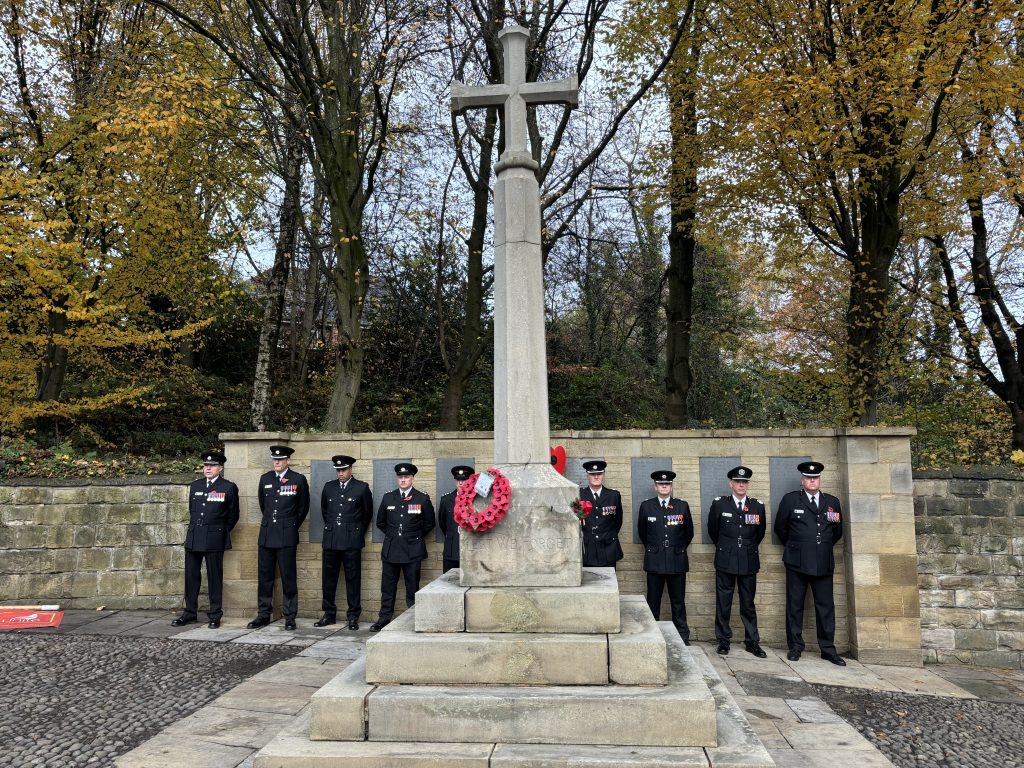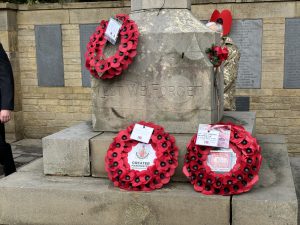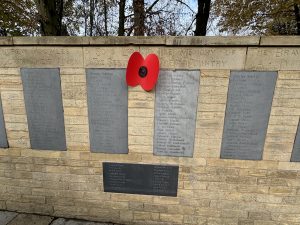
Members of the Greater Manchester Fire Service gathered at Agecroft War Memorial to celebrate Remembrance Day and those lost from Salford during the world wars.
On the eleventh hour, on the eleventh day, of the eleventh month, most in Salford will fall silent and celebrate the people who have lost their lives in the military, with a focus on the first and second world wars.
On an important morning in the calendar for many, several gathered around the Agecroft War Memorial, which records 192 men who died in WWI and worked in Salford collieries.
The cenotaph reads: ‘To the memory of the brave men from their collieries who laid down their lives in the serving of their country.’
As heavy traffic rolled past the busy junction, the moments of silence only fell on the two minutes after the clock ticked onto the number eleven, where everyone sat still.
Members and service officers of the Greater Manchester Fire Service (GMFRS), stood in a line draped in medals, behind the cenotaph as the clock ticked to the eleventh hour, in which a silence was observed for those who lost their lives.
Preceding the silence, a speech was read out by the GMFRS: “Not old, as we are left, grow old. Age should not weary them, nor the years condemn. And the going down of the sun, and in the morning, we will remember them.”
Following the silence, the final words echoed around the onlooking crowd: “When you go home, tell them of us, and say, for your tomorrow, you gave our today.”
The GMFRS then placed a wreath on the cenotaph, quickly followed by a second wreath, placed by Paul Kelly, secretary of the Irwell Valley Mining Project.

The memorial was erected by Andrew Knowles, who is not fondly thought of in Salford due to his treatment of those who worked in his pits during the time.
Yet this memorial has been utilised for remembrance throughout the years, and as poppies surround the cenotaph which reads ‘Lest We Forget,’ it serves as an important area in Salford for the families of those who lost loved ones during the world wars.
The attendance reflected the importance, as the impressive numbers of people of all ages gathered on the corner of Agecroft Road, signifying how many were lost during the war from the area.

Yesterday, another service was held by HMS Eaglet at the nearby Agecroft Cemetery and Crematorium, where three key sites were places of remembrance; the row of war graves, the Salford Blitz Memorial and the Lancaster Bomber Memorial, which remembers the crash near the River Irwell.
The Lancaster Bomber, according to witness accounts, was when a British aeroplane, named the Lancaster, crashed and blew up on the bank of the River Irwell by Pendlebury.
The aircraft was flying low with port engine trouble, and an attempt to land failed.
The plane had bombs on board, which exploded approximately 30 seconds after landing. Nine were killed as a result of the crash, with over eighty injured as a result of the explosion.
With such a rich history of war, Remembrance Day remains and will forever continue to be a key date in the diary for Salfordians every year.















Recent Comments